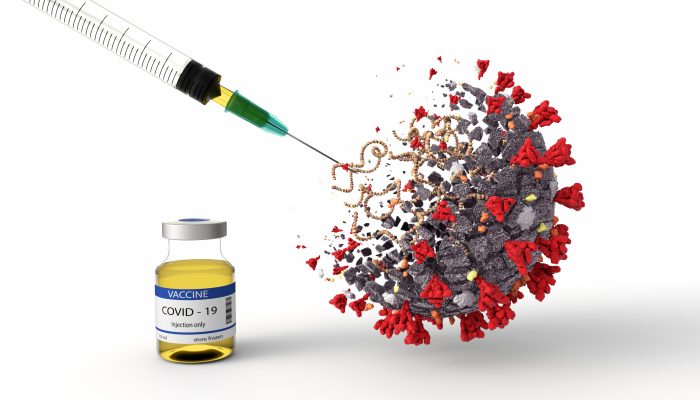Good morning. We look at the costs of vaccine alarmism. |
|
A vaccine shot? No thank you |
If you’re a regular reader of this newsletter, you’re probably familiar with the idea of vaccine alarmism. It goes something like this: |
The coronavirus vaccines aren’t 100 percent effective. Vaccinated people may still be contagious. And the virus variants may make everything worse. So don’t change your behavior even if you get a shot. |
Much of this message has some basis in truth, but it is fundamentally misleading. The evidence so far suggests that a full dose of the vaccine — with the appropriate waiting period after the second shot — effectively eliminates the risk of Covid-19 death, nearly eliminates the risk of hospitalization and drastically reduces a person’s ability to infect somebody else. All of that is also true about the virus’s new variants. |
Yet the alarmism continues. And now we are seeing its real-world costs: Many people don’t want to get the vaccine partly because it sounds so ineffectual. |
About one-third of members of the U.S. military have declined vaccine shots. When shots first became available to Ohio nursing-home workers, about 60 percent said no. Some N.B.A. stars are wary of appearing in public-services ads encouraging vaccination. |
Nationwide, nearly half of Americans would refuse a shot if offered one immediately, polls suggest. Vaccination skepticism is even higher among Black and Hispanic people, white people without a college degree, registered Republicans and lower-income households. |
Kate Grabowski, an epidemiologist at Johns Hopkins, told me that she has heard from relatives about their friends and co-workers choosing not to get a shot because they keep hearing they can still get Covid and pass it on to others — and will still need to wear masks and social distance. “What’s the point?” she said, describing their attitude. |
The message from experts, Grabowski said, is “being misinterpreted. That’s on us. We’re clearly doing something wrong.” |
“Our discussion about vaccines has been poor, really poor,” Dr. Muge Cevik, a virologist, told me. “As scientists we need to be more careful what we say and how that could be understood by the public.” |
|
The cost of confusion |
Many academic experts — and, yes, journalists too — are instinctively skeptical and cautious. This instinct has caused the public messaging about vaccines to emphasize uncertainty and potential future bad news. |
To take one example: The initial research trials of the Moderna and Pfizer vaccines did not study whether a vaccinated person could get infected and infect another person. But the accumulated scientific evidence suggests the chances are very small that a vaccinated person could infect someone else with a severe case of Covid. (A mild case is effectively the common cold.) You wouldn’t know that from much of the public discussion. |
“Over and over again, I see statements that in theory one could be infected and spread the virus even after being fully vaccinated,” Dr. Rebecca Wurtz of the University of Minnesota told me. “Is the ambiguous messaging contributing to ambivalent feelings about vaccination? Yes, no question.” |
The messaging, as Dr. Abraar Karan of Brigham and Women’s Hospital in Boston said, has a “somewhat paternalistic” quality. It’s as if many experts do not trust people to understand both that the vaccines make an enormous difference and that there are unanswered questions. |
As a result, the public messages err on the side of alarmism: The vaccine is not a get-out-of-Covid-free card! |
In their own lives, medical experts — and, again, journalists — tend to be cleareyed about the vaccines. Many are getting shots as soon as they’re offered one. They are urging their family and friends to do the same. But when they speak to a national audience, they deliver a message that comes off very differently. It is dominated by talk of risks, uncertainties, caveats and possible problems. It feeds pre-existing anti-vaccine misinformation and anxiety. |
No wonder that the experts’ own communities (which are disproportionately white, upper-income and liberal) are less skeptical of the vaccines than Black, Latino, working class and conservative communities. |
Over the next several weeks, the supply of available vaccines will surge. If large numbers of Americans say no to a shot, however, many will suffer needlessly. “It makes me sad,” Grabowski told me. “We’ve created this amazing technology, and we can save so many lives.” |
What should the public messaging about the vaccines be? “They’re safe. They’re highly effective against serious disease. And the emerging evidence about infectiousness looks really good,” Grabowski said. “If you have access to a vaccine and you’re eligible, you should get it.” |
Virus developments: |
|




No comments:
Post a Comment